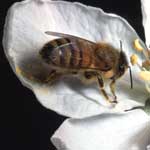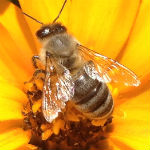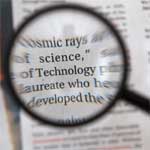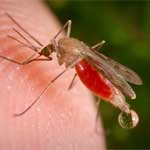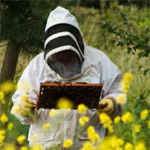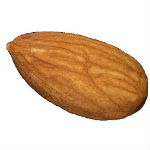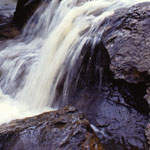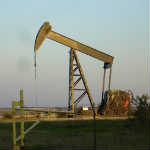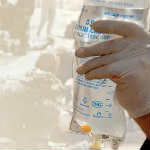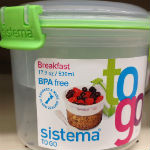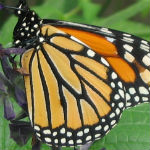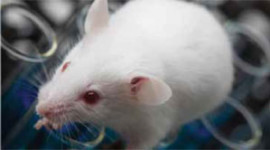"Part I: Bee Deaths Mystery Solved? Neonicotinoids (Neonics) May Actually Help Bee Health," By Jon Entine. Reports that honey bees are dying in unusually high numbers has concerned many scientists, farmers and beekeepers, and gripped the public. There have been thousands of stories ricocheting across the web, citing one study or another as the definitive explanation for a mystery that most mainstream experts say is complex and not easily reducible to the kind of simplistic narrative that … [Read more...]
No Effect of Neonics in Field Study of Honeybees
"New Field Study Confirms Neonicotinoids Have Little Impact on Honeybees," By Angela Logomasini. As the Ontario provincial government in Canada considers policies that may force farmers to stop using, or drastically reduce use of, a class of pesticides called neonicotinoids, a new study shows why such policies are unlikely to do any good. Supposedly, limiting use of these pesticides will improve honeybee hive health, but such regulations will simply make it harder for farmers to produce an … [Read more...]
BPA Science Overload?
"The BPA Paradox – Too Many Studies?" By Steve Hentges. For many years, scientists around the world have been intensely interested in bisphenol A (BPA), a common chemical used to make polycarbonate plastic and epoxy resins. But what have we learned from the supersized investment in research on this one chemical, and what can we expect in the future? Recent articles suggest that we haven’t learned as much as might be expected from such a large investment, but more research on BPA is probably in … [Read more...]
EWG Also Wrong about Chemical in Bread Dough
"EWG’s Alarmist Claims about Bread Dough Additive: Weak and Mushy," By Angela Logomasini. Today, let’s look at the Environmental Working Group’s (EWG) warning about potassium bromate, which is number two on the group’s dirty dozen food additive list. Again, EWG’s alarmist claims are weak and mushy. Potassium bromate is added to dough in the making of bread to help improve texture and elasticity of the bread and make it airy and light. It can be toxic to humans exposed to relatively high, … [Read more...]
EWG Wrongheaded Attack on Bacon “Additives”
"EWG Attack on Bacon Additive is Half-Baked," By Angela Logomasini. A critical look at EWG’s “Dirty Dozen Guide to Food Additives” offers an opportunity for those who want to learn how to recognize activist-generated junk science and fear mongering. My blog post on Friday provided an overview for a series of posts on the topic. Today let’s start with EWG’s first allegedly bad food additive: nitrates/nitrites, which they complain are used in bacon. Yet there's no need to stop enjoying this … [Read more...]
Endocrine Disruptors and Male Fertility
"Phthalates And Prostates: Endocrine Disruptors Shortening The Distance Between Male Anus And Penis," By Hank Campbell. Men are becoming more effeminate. That is not news. If you watched the ESA's Rosetta mission arrive at Comet P67 you saw a tattoo-covered fellow talk about engineering and he looked manly, but two days later he was crying during a press conference because his bowling shirt had offended women on Twitter. The signs of feminization are not just present in large, bearded men … [Read more...]
How Anti-Pesticide Policies Kill
"Green Hysteria Costs Lives," By Jasson Urbach. Africa Fighting Malaria Apparently we no longer live in a world that values technological advancement. Canadian Environmental Commissioner, Gord Miller, recently stated, "[Neonicotinoids are] the biggest threat to the structure and integrity of the ecosystem that I have encountered in my life... Bigger than DDT". Neonicotinoids are a remarkable and desperately needed kind of insecticide. Miller bases his mistrust of neonicotinoids on an unfounded … [Read more...]
Harmful Effects of Baseless Pesticide Bans
"First DDT, now Neonics—the Harmful Effects of “Environmentalist”-Sponsored, Baseless Pesticide Bans," By American Council on Science and Health.quito In a recent article from Africa Fighting Malaria, author Jasson Urbach addresses the harmful effects of banning a class of insecticides: neonicotinoids. Urbach compares the unfounded fears of neonics with those of DDT, giving a brief history of the negative effects that bans on DDT have had on public health. For example, when South Africa stopped … [Read more...]
EWG’ Attack on Chardonnay “Additive”
"EWG's Dirty Dozen Guide to Food Additives Nonsense," By Angela Logomasini. If you like Chardonnay that’s full-bodied and creamy, you might set that enjoyment aside after reading the Environmental Working Group’s (EWG) latest “dirty dozen list." But by all means, don’t do it! EWG’s list of allegedly bad-for-you food “additives” are perfectly safe to enjoy! And they have benefits, such as the buttery flavor in my favorite Chardonnay from a chemical called diacetyl! If you want to be healthy, … [Read more...]
Green Chemistry: NYT Gets It Wrong
"The New York Times Needs Chemistry Lesson (Badly)," By American Council on Science and Health. An op-ed in the November 9 New York Times, entitled “Making Chemistry Green,” by Robert S. Lawrence and Rolf U. Halden could have been entitled “Green in Chemistry.” based on some rather obvious errors. ... “We should regulate chemicals as we understand them: in groups. Instead of regulating one compound at a time..” Bloom: “No: that’s exactly what we should not do. Within classes of chemicals, very … [Read more...]
Beekeeper Rejects Anti-Pesticide Campaign
"Bees, Bans and Bungling: How an Anti-pesticide Campaign May Spell Serious Trouble," by Claire Brownell. At the end of a long day in the field, Ontario beekeeper Hugh Simpson is on his way to a meeting, where he’s looking forward to a packed agenda talking shop. Bee talk. Honey discourse. And absolutely not about banning pesticides. In March, Mr. Simpson was involved in forming the Independent Commercial Beekeepers. So far, the group has attracted about 20 members, based out of Ontario’s … [Read more...]
Recall: Whole Foods Organic Almonds
"Organic At Your Own Risk: Whole Foods Almonds Contain Hydrogen Cyanide," By Hank Campbell The U.S. Food and Drug Administration (FDA) is warning Whole Foods customers not to consume a line of organic raw almonds due to elevated levels of hydrogen cyanide (prussic acid/formonitrile - chemical formula HCN). Hydrogen cyanide is a natural toxic chemical that interferes with oxygen in our organs so it can quickly be fatal, but even in smaller exposure can be damaging to the central nervous system, … [Read more...]
Fracking Does not Pollute Water and Air
"Fracking Operators Have Solved Most Problems, are Working on the Rest," By H. Sterling Burnett. Oil and gas operators are on the verge of solving the only arguably legitimate objections raised against the practice of hydraulic fracturing for oil and gas production: earthquakes and water consumption. Innovation has brought good news to an industry that has a serious image problem despite the tremendous good it has done for our country. Environmental lobbyists contend fracking pollutes the air … [Read more...]
No Need to Fear Dr. Oz’s “Secret” Chemical Ingredients
"Dr Oz and Phthalates," By Dr. Joe Schwarcz. The title of the segment on the Dr. Oz Show was “The Secret Ingredient Companies are Hiding in Your Food.” What could that be? Some opiate to keep you coming back for more? Tetrahydrocannabinol to increase appetite? No. The segment was all about chemicals called phthalates. And companies are not hiding their presence any more than they are “hiding” the presence of numerous substances that are not added to our food supply on purpose but can be … [Read more...]
Fracking Fears Unfounded
"Denton, TX, “Birthplace” of Fracking, Votes it off the Island. So What?," By American Council on Science and Health. A relatively minor footnote to the major election news last Tuesday occurred in a small college town in the vast oil and gas region known as the Barnett Shale. Not far from Dallas, Denton TX is known in some circles as the birthplace of the technology known by cognoscenti as high-volume hydraulic fracturing of shale to release and collect the entrapped natural gas and other … [Read more...]
More Toxic Advice From Dr. Oz
"Dr. Oz Magic Will Protect You From Toxic Chemicals. No it Won’t," by American Council on Science and Health. Always be selling seems to be the watchword on the “Dr.Oz Show,” or perhaps it should be called “The Dr.Oz Travelling Medicine Show,” given the snake-oil and related supplement junk he purveys in the guise of public health. But in order to convince as many of his star-struck viewers to buy his “Dr. Oz Diet,” he first has to scare them away from traditional fare. That’s where his new … [Read more...]
Don’t Fear Plastics
"Shoutout to ACSH Friend Jack Dini for an Informative Column on Chemophobia," by American Council on Science and Health. ACSH friend and author Jack Dini published a very informative article countering many fears regarding common substances found in plastics. The article, titled “Don’t fall victim to plastic leaching from items,” was recently published in the Canada Free Press. The column summarizes some of the recent literature surrounding these substances, including BPA (Bisphenol A) and … [Read more...]
BPA Risky Only in “Alternative Universe”
"The Alternative Universe In Which BPA Is A Major Health Threat," By Geoffrey Kabat. With an estimated 40 percent of Americans, according to a Harvard poll, worried that they could contract Ebola, two days ago the journal PLoS ONE published a paper which claims to show that handling of cash register receipts puts you a risk of myriad diseases. The paper is from a group at the University of Missouri headed by Frederick vom Saal, a biologist who has the distinction of being the driving force … [Read more...]
Non-Science: BPA and Cash Receipts
“If This Paper Were About Science,” says Geoffrey Kabat: Purported Link Between BPA from Cash Receipts and Health Effects By American Council on Science and Health. 466583_32876683Earlier this week, we discussed a study conducted by Frederick vom Saal, the best-known fringe anti-BPA activist posing as a scientist, attempting to link “high” levels of BPA in the blood stream and urine from the handling of thermal paper cash receipts to increased risk of serious diseases. Yet, as ACSH advisor Dr. … [Read more...]
Latest Fear-Mongering Attempt: BPA and Receipts
"Avoid Those Thermal Paper Cash Receipts, Says Well known Anti-Science BPA Critic, vom Saal," By American Council on Science and Health. If you believe what you read about BPA and its harmful effects on human health, a topic that we here at ACSH have taken on many times, the latest development from Frederick vom Saal, Professor of Biological Sciences at Missouri University and perhaps the best-known fringe anti-BPA activist posing as a scientist, might stop your shopping habits, or at least … [Read more...]
University Level Anti-Chemical Scare Power
‘Monsters University’ is Real — I Work There, By Anonymous. What if those scary Halloween monsters … were real? That’s the premise of the movie “Monsters, Inc,” where the monsters work year-round. And they don’t just extort candy. Their entire world runs on “Scream Power” — let’s simply call it “Scare Power” — and harvesting it is even more productive than fracking. We see in the more recent “Monsters University” that “it takes a University” to make the Scare Power industry work. The heart of … [Read more...]
Cosmo Magazine “Science”: Plastics Duckies Ruin Your Love Life!
"Are Plastic Products Costing You Your Sex Drive?" By Julie Gunlock. Are plastics causing women to lose their sex drive? The Guardian warns, “How household plastics could ruin your sex life.” The Telegraph’s headline suggests, “Rubber ducks can kill your sex drive, research finds.” Cosmopolitan Magazine wonders “Are Chemicals in Plastic Reducing Your Sex Drive?” while the Daily Mail declares that it’s all down to those pesky modern products: Read more. … [Read more...]
Green Politics Won’t Save Monarch Butterflies
"Green Exploitation of the Monarch Butterfly," By Angela Logomasini. Butterflies offer powerful imagery for environmental groups looking to advance their agendas. After all, who doesn’t want to save these beautiful creatures? Surely green activists could leverage those desires to advance voluntary efforts to create butterfly habitat. But the actions of some groups indicates that they would rather exploit the butterflies to gain policy victories in Washington, even if the butterflies suffer as … [Read more...]
BPA Science and Media Explained
"BPA in the Media – Let’s Read Between the Lines Before Drawing Conclusions," by BPA Coalition. This fall, writing about science has been the new black. However, communicating science to non-scientists is more difficult than one may think. Keeping the meaning intact while getting rid of the jargon often proves a daunting exercise. And unfortunately, readers, unless scientists themselves, often cannot make the difference between an informed and an uninformed piece. This why we compiled an … [Read more...]
BPA-Related Junk Science Linked to Federal Spending
"BPA Research Funding Linked to Researcher Bias?" by Angela Logomasini. The number of studies that have appeared in the news during recent years on the chemical bisphenol A (BPA) is staggering. Few substances undergo such scrutiny. So why BPA? Mattie Duppler of American’s for Tax Reform’s Cost of Government project answers that question in an article for The Hill’s Congress Blog: Congress has poured millions of dollars ($170 million since 2000) into BPA research for what amounts to little more … [Read more...]
